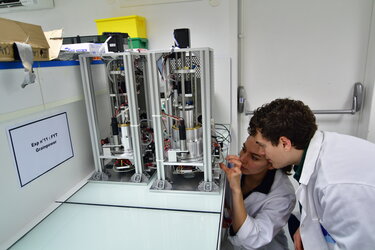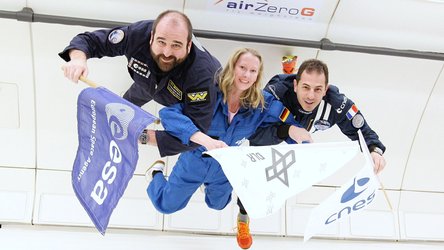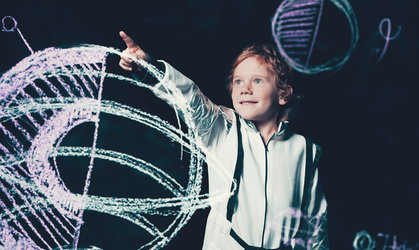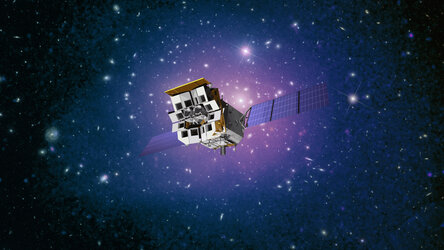Accept all cookies Accept only essential cookies See our Cookie Notice

About ESA
The European Space Agency (ESA) is Europe’s gateway to space. Its mission is to shape the development of Europe’s space capability and ensure that investment in space continues to deliver benefits to the citizens of Europe and the world.
Highlights
ESA - United space in Europe
This is ESA ESA facts Member States & Cooperating States Funding Director General Top management For Member State Delegations European vision European Space Policy ESA & EU Responsibility & Sustainability Annual Report Calendar of meetings Corporate newsEstablishments & sites
ESA Headquarters ESA ESTEC ESA ESOC ESA ESRIN ESA EAC ESA ESAC Europe's Spaceport ESA ESEC ESA ECSAT Brussels Office Washington OfficeWorking with ESA
Business with ESA ESA Commercialisation Gateway Law at ESA Careers Cyber resilience at ESA IT at ESA Newsroom Partnerships Merchandising Licence Education Open Space Innovation Platform Integrity and Reporting Administrative Tribunal Health and SafetyMore about ESA
History ESA Historical Archives Exhibitions Publications Art & Culture ESA Merchandise Kids Diversity ESA Brand Centre ESA ChampionsLatest
Space in Member States
Find out more about space activities in our 23 Member States, and understand how ESA works together with their national agencies, institutions and organisations.
Science & Exploration
Exploring our Solar System and unlocking the secrets of the Universe
Go to topicAstronauts
Missions
Juice Euclid Webb Solar Orbiter BepiColombo Gaia ExoMars Cheops Exoplanet missions More missionsActivities
International Space Station Orion service module Gateway Concordia Caves & Pangaea BenefitsLatest
Space Safety
Protecting life and infrastructure on Earth and in orbit
Go to topicAsteroids
Asteroids and Planetary Defence Asteroid danger explained Flyeye telescope: asteroid detection Hera mission: asteroid deflection Near-Earth Object Coordination CentreSpace junk
About space debris Space debris by the numbers Space Environment Report In space refuelling, refurbishing and removingSafety from space
Clean Space ecodesign Zero Debris Technologies Space for Earth Supporting Sustainable DevelopmentLatest
Applications
Using space to benefit citizens and meet future challenges on Earth
Go to topicObserving the Earth
Observing the Earth Future EO Copernicus Meteorology Space for our climate Satellite missionsCommercialisation
ESA Commercialisation Gateway Open Space Innovation Platform Business Incubation ESA Space SolutionsLatest
Enabling & Support
Making space accessible and developing the technologies for the future
Go to topicBuilding missions
Space Engineering and Technology Test centre Laboratories Concurrent Design Facility Preparing for the future Shaping the Future Discovery and Preparation Advanced Concepts TeamSpace transportation
Space Transportation Ariane Vega Space Rider Future space transportation Boost! Europe's Spaceport Launches from Europe's Spaceport from 2012Latest

Pulsating Heat Pipes 'Fly your thesis!' experiment
Thank you for liking
You have already liked this page, you can only like it once!
Preparing the PHP^Cubed experiment for the 72nd ESA parabolic flight campaign as part of the 'Fly your thesis' educational initiative. Parabolic flights treat passengers and experiments to a rollercoaster ride, flying angled at 49º 30 times per flight. They are used to conduct short-term scientific and technological investigations in microgravity and reduced gravity, to test instrumentation before use in space, to validate operational and experimental procedures, and to train astronauts for spaceflight.
The PHP^3 team is five enthusiastic engineering master's students all based at the University of Brighton, UK, with almost four years of combined industrial experience between them. They are looking to take heat management technology (Pulsating Heat Pipes, PHPs) and scale it down to explore its feasibility as a nanosatelite-sized solution for future space technologies. PHPs have an appeal as an alternative heat management solution for satelites as their passive hydro-thermal mechanics require no moving parts or pumps to work, significantly reducing the risk of the system failing and requiring maintenance; which is not always possible if the system is in space. More info on the website: https://www.php-cubed.com/the-team
The Fly Your Thesis! programme gives master and PhD candidates the opportunity to fly their scientific experiment or technological research in microgravity conditions. The experiments can be related to fluid physics, chemistry, biology, material sciences, heat transfer and astrophysics. The parabolic flight campaign takes place on the Airbus A310 Zero-G, which is operated by Novespace from Bordeaux, France. Each campaign consists of a series of three flights providing about 20s of microgravity each.
-
CREDIT
ESA–M. Cowan -
LICENCE
ESA Standard Licence

Preparing 'flow boiling heat transfer at low gravity…

Grainpower 'Fly your thesis!' experiment

Fly Your Thesis!

The 2009 campaign students and the 'Fly Your Thesis!' team















 Germany
Germany
 Austria
Austria
 Belgium
Belgium
 Denmark
Denmark
 Spain
Spain
 Estonia
Estonia
 Finland
Finland
 France
France
 Greece
Greece
 Hungary
Hungary
 Ireland
Ireland
 Italy
Italy
 Luxembourg
Luxembourg
 Norway
Norway
 The Netherlands
The Netherlands
 Poland
Poland
 Portugal
Portugal
 Czechia
Czechia
 Romania
Romania
 United Kingdom
United Kingdom
 Slovenia
Slovenia
 Sweden
Sweden
 Switzerland
Switzerland
























